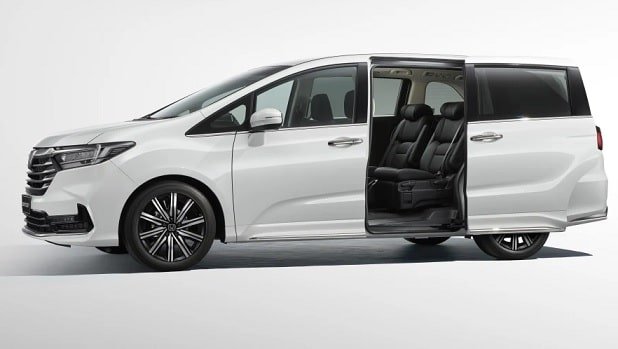The AC is one of the most important features of your Honda Civic. Imagine driving without an AC under very warm weather. It could be frustrating, especially when you are stuck in a traffic jam. This is why you need your AC to work optimally at all times.
But what happens when you turn on your AC and it refuses to function? In this post, we will discuss the common issues that affect the AC system the Honda Civic vehicles. We will also tell you how to fix them. Note, however, that some issues might more serious than you can fix on your own.

- Signs Your Honda Civic AC Isn’t Working
- Warm Air
- Weird Noise
- Weak Air Pressure
- Smelly Air
- AC Doesn’t Come On At All
- Likely Reasons Your Honda Civic AC Isn’t Working
- Honda Civic AC Not Working: How to Fix
- If your AC is blowing warm air…
- If your AC is making weird rattling noises…
- If there is weak air pressure in the AC…
- If the AC produces a foul smell…
- If the AC doesn’t come on at all…
- Other Fixes to Try
- Check the Compressor
- Check for Refrigerant Leaks
- Check if the System is Low on Refrigerant
- Check the cooling fans
- Wrap-up
Signs Your Honda Civic AC Isn’t Working
Before we discuss the causes of your AC issues and how to fix them, let’s first enumerate the common AC problems. The first question that comes to mind is this, how do you know that your AC isn’t working? There are several things that you will notice, here are a few of them:
Warm Air
This is probably one of the most common problems that you will experience with your Honda Civic AC. The AC keeps blowing hot air even after you have run the car for a while. What could be the reason? We will discuss this later in this post.
Weird Noise
Another very common problem that owners of Honda Civics face with their ACs is noise. Sometimes, you may notice that your AC is producing a very weird noise. We will tell you what is causing this rattling noise in the next section.
Weak Air Pressure
In some cases, when you turn on your AC, you notice that the air pressure is unusually low. Even when you switch it to “max,” the pressure doesn’t increase. Why is this happening? Read on to know the reason.
Smelly Air
In this case, you will notice a certain foul smell accompanying the air from your AC vent. It is always very terrible and makes you want to switch off the AC. You have to choose between the heat and the smell. We will tell you why this is happening as we go on.
AC Doesn’t Come On At All
There are times when you switch on the AC and it doesn’t come on at all. You can tell this is the case when you don’t feel the slight sudden vibration that comes from the hood when the AC engages, or when the AC indicator lights won’t just come on.
Likely Reasons Your Honda Civic AC Isn’t Working
If your AC system is not working, it is likely to one or more parts of the system is faulty and would have to be repaired or replaced.
These parts include:
- Compressor – This is a vital component in the AC system that raises the pressure and temperature of the refrigerant
- Dryer – This part removes sediment and retains moisture
- Condenser – This is acts as a mini radiator. It will release the heat from the system into the atmosphere.
- Accumulator – This performs the same function as the dryer, as well as, capturing liquid refrigerant so it does not reach the compressor. Depending on the year of your Honda Civic, it may come with a dryer or an accumulator.
- Expansion Valve – This component converts high-pressure refrigerant into low pressure, temperature spray that is sent into the evaporator inside the cabin.
So, here are the common reasons why Honda Civic ACs fail to work:
- Bad compressor
- Faulty blower motor
- Blown fuse
Honda Civic AC Not Working: How to Fix
Now that you know the most common signs of a faulty Honda Civic AC, let’s look at some of the common causes of the problem.
If your AC is blowing warm air…
It could be that the compressor clutch is broken. Normally, the compressor clutch should spin when the AC is working. When it doesn’t, the air that the AC produces will be warm. It could also be a result of the refrigerant or Freon leaking out. There are several other possible reasons why the AC is blowing warm air. Some of them include vacuum leaks, bad fuses, a bad solenoid, etc.
Your first step towards solving the problem is to check the pipes and hoses for leaks. If you notice that the refrigerant is escaping, then you should seal the escape points. In some cases, it may be the rubber seals with the issue. When you notice such, we advise that you replace them. You should reach out to a professional to help if you don’t have prior experience.
If your AC is making weird rattling noises…
Your compressor might be having a problem. Sometimes, the noise is not a rattling noise; rather it is a squealing sound. This sound isn’t related to your Honda Civic’s air-conditioning system. However, it comes up when you turn on the AC. It is a belt-related issue.
If there is weak air pressure in the AC…
There are several reasons why the air pressure from your AC is very low. One of them is that the ventilation fan or blower motor is broken. It could also be that one hose has come loose. If it is none of these, then there is a high possibility that some mold has developed over the vents. Sometimes, it is a case of the seals lodged in the system being out of place. Finally, it could just be a case of a bad cabin filter.
If the AC produces a foul smell…
When there is a foul smell from the AC vents, there are two major reasons. The first possible reason is that the air filter in the cabin is old and needs replacement. If it isn’t the air filter, then it could be that there is mold or mildew in the air-conditioning system. Such develops when some moisture has stayed a while within the system.
When there is a foul smell from your AC, then you should open the vents and clean them. You can also reach your mechanic for thorough cleaning of the rest of the system if it persists.
If the AC doesn’t come on at all…
You might be dealing with an electrical problem here. It is possible that the circuit is broken or some fuses are bad. Talk to your mechanic to help you fix the issue.
Other Fixes to Try
Check the Compressor
A/C problems are likely due to a faulty compressor. You can inspect the compressor to see if it is still working.
- To do this, get the engine running and turn on the A/C. Then lift the hood of the car.
- Check if the compressor is turning. Then feel the largest A/C hose to check if it is cold.
- If both checks come back positive, then the compressor is ok and you can move on to other systems.
However, if both come back negative, then you would be dealing with a problem of power failure, a bad control head on the dash, or low refrigerant.
There are many ways to check for a faulty compressor.
Turn on the A/C and listen for a clattering noise under the hood. If you do hear this sound, then the compressor is going bad and might have to be replaced.
With the A/C on also listen for a grinding sound when the compressor comes on the clutch. This could also signal a problem with the clutch and the compressor.
If the system is producing warm air, feel the small line under the hood of the A/C. This should be hot if the compressor is working probably. If not, then the compressor would have to be replaced. There is also a large line that should be cold while the small line remains hot. If the large line is cool but not cold, then the system might only need a recharge.
Check for Refrigerant Leaks
Aside from the compressor going bad, one more common problem with A/C systems is a refrigerant leak. Diagnosing a refrigerant leak could be done through a visual inspection or through A/C gauges
You can hook up the A/C gauges to the system. Have the red hose going to the small line (high-pressure side) and the blue hose going to the opposite large line (low-pressure side). The gauge should read about 80 pounds to the blue side and 140 to the red side.
The actual figures would depend on the outside temperature but should be pretty close. This should be done with the compressor off. It shows just how much pressure it takes to turn the low side switch on and allow the compressor to work.
If the pressure on the gauges read way below the prescribed figures, you would be dealing with a refrigerant leak. To confirm this, you would have to get your mechanic to check the system. If it is confirmed that you’re having a refrigerant leak then you must have it repaired immediately to prevent further damages to your car.
Check if the System is Low on Refrigerant
This should be easy to diagnose. If you noticed that your AC doesn’t cool as much as it used to, it could be a sign that the system is low on refrigerant. This can also be confirmed by checking if the compressor cycles on and off frequently.
To solve it, you would have to charge the car A/C. This won’t require a visit to the mechanic shop but if you’re not able to use a DIY charge kit, then you could let your mechanic do it to get the best results. If you’re going ahead to charge it on your own, then you would have to purchase a charge kit as well as a can of refrigerant. You might also want to get a UV kit to help you check and correct minor leaks after the recharge.
To recharge the AC system:
- Find the low side port of the A/C system. Depending on the year of your vehicle, this could be a barb between the compressor and the evaporator.
- Screw the dispenser hose and gauge onto the refrigerant. Then attach the low side port.
- Start the engine and turn the A/C system to its maximum setting and check the gauge reading.
- With the compressor spinning, the clutch should be engaged. Since the system is low on refrigerant, the compressor might not engage.
- You would have to dispense the refrigerant until the clutch engages.
- Check the pressure charge in the refrigerant for the proper system pressure. You should stick to it to avoid over pressurizing the system.
- With that done, you would have to check for minor leaks.
- This is where the UV kit comes in handy. You can use the UV pen to examine all valves and junction points for leaks.
Check the cooling fans
If you notice that the cooling fans aren’t working, then it could be that the connection is bad. Sometimes, it is a case of bad fuses. You can quickly check the fuses and replace the bad ones or speak to your mechanic to help.
Wrap-up
Honda Civic AC problems are not frequent. But if you’re experiencing one, then you would have to dedicate a good amount of time to get things fixed. Try the tips on this page one after the other until you’re able to solve the problem. But if none seems to work, you’d have to visit your mechanic.







